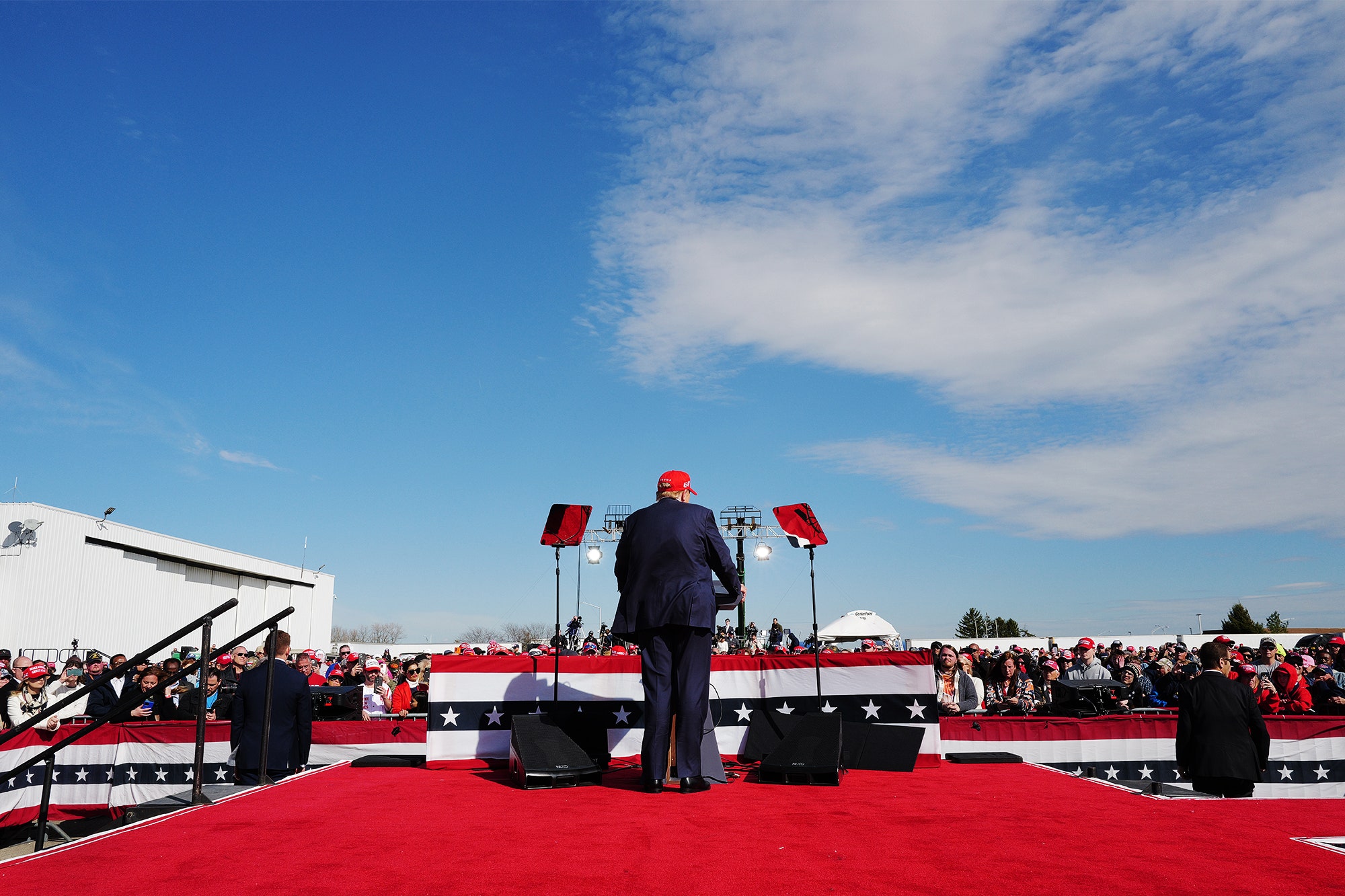Donald Trump issued a stark warning during a recent speech, suggesting that failure in the upcoming election might jeopardize the democratic process in the United States. This ominous statement, however, is not an isolated incident but rather a continuation of Trump’s tendency towards projection.
Addressing his supporters in Ohio, Trump employed dehumanizing language towards certain migrants, a tactic commonly seen among autocratic leaders. He also referred to the individuals involved in the January 6 insurrection as “hostages,” even going so far as to salute them. Furthermore, Trump proposed implementing a 100% tariff on Mexican-made Chinese cars, exacerbating inflation concerns.
While Trump has long painted a picture of “American carnage,” it’s crucial for the media to highlight the stark departure his rhetoric represents from past presidential nominees, including current President Joe Biden.
Just days prior to his speech, Trump praised Hungarian autocrat Viktor Orbán, further indicating his admiration for authoritarian figures. Reports also surfaced regarding Trump’s favorable views of dictators like Kim Jong Un and even Adolf Hitler.
Unlike in 2016, when media attention was disproportionately focused on issues like Hillary Clinton’s emails, the current election cycle demands a closer examination of the potential consequences of a second Trump presidency.
Trump (Credits: The Hill)
Trump’s influence within the Republican Party is undeniable, as evidenced by his strategic placements within the party’s hierarchy. Leading figures who challenged Trump’s false claims about the 2020 election, such as Liz Cheney, have faced repercussions, demonstrating the party’s alignment with Trump’s agenda.
With the election drawing closer, polls suggest the possibility of Trump’s return to power. However, given past inaccuracies in polling data, it’s essential not to rely solely on these predictions. Regardless of the outcome, the media has a responsibility to educate the public about the threat Trump poses to democracy and the potential ramifications of his policies on both domestic and international fronts.
Despite concerns about news fatigue and declining viewership, the media must remain vigilant in scrutinizing Trump’s rhetoric and actions. Social media platforms, once tasked with fact-checking, have increasingly failed to hold Trump and his allies accountable for spreading misinformation.
This disinformation campaign, coupled with a dwindling trust in mainstream media among certain segments of the population, poses significant challenges to public discourse and democratic norms.
It’s imperative for journalists to resist the temptation to equate Trump’s rhetoric with conventional political discourse. Trump’s deviations from democratic norms should be highlighted rather than normalized. Former administration officials, including Mike Pence, have raised alarms about Trump’s authoritarian tendencies, underscoring the importance of accurate and critical reporting.
In conclusion, the media must not underestimate the gravity of the situation. Trump’s potential return to the White House threatens not only democracy but also the integrity of the free press. It’s crucial for journalists to prioritize truth and accountability in their coverage, as the future of democracy hangs in the balance.
